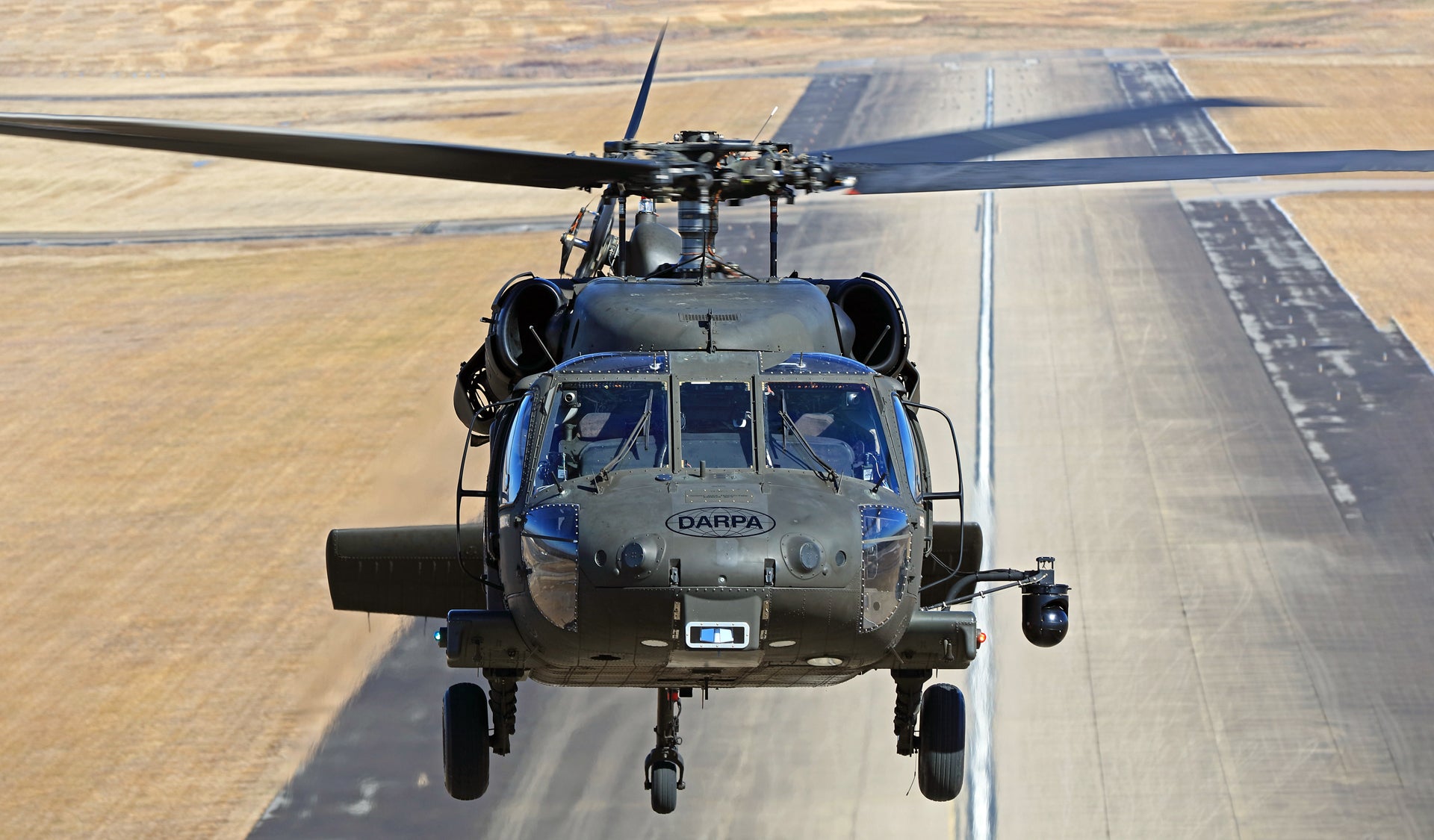Fully autonomous Black Hawk helicopter flies for first time with no pilot
Two flights took place in skies above Kentucky’s Fort Campbell
Your support helps us to tell the story
From reproductive rights to climate change to Big Tech, The Independent is on the ground when the story is developing. Whether it's investigating the financials of Elon Musk's pro-Trump PAC or producing our latest documentary, 'The A Word', which shines a light on the American women fighting for reproductive rights, we know how important it is to parse out the facts from the messaging.
At such a critical moment in US history, we need reporters on the ground. Your donation allows us to keep sending journalists to speak to both sides of the story.
The Independent is trusted by Americans across the entire political spectrum. And unlike many other quality news outlets, we choose not to lock Americans out of our reporting and analysis with paywalls. We believe quality journalism should be available to everyone, paid for by those who can afford it.
Your support makes all the difference.A fully autonomous Black Hawk helicopter has flown for the first time without a pilot at the controls.
The helicopter took to the skies, with no passengers on board, above Fort Campbell, Kentucky, for 30 minutes.
The test flight on 5 February was a partnership between Lockheed Martin Sikorsky and the Defence Armed Research Projects Agency (DARPA). A second flight took place on 7 February.
The project is part of DARPA’s Aircrew Labor In-Cockpit Automation System (ALIAS) programme, which aims to put “removable kits” into existing military aircrafts to “promote the addition of high-level automation”.
An autonomous Black Hawk could be used on rescue missions without any risk to a pilot, or to deliver supplies in a dangerous war zone.
The Black Hawk flew after it had Sikorsky MATRIX autonomous technology installed to allow it to fly without a pilot.

During the flight, ALIAS had to overcome a string of simulated obstacles before performing a perfect landing back on the runway.
“With reduced workloads pilots can focus on mission management instead of the mechanics,” said Stuart Young, program manager in DARPA’s Tactical Technology Office.
“This unique combination of autonomy software and hardware will make flying both smarter and safer.”
The autonomous helicopters will help the Army to have “much more operational flexibility” in its missions, said Mr Young.
“This includes the ability to operate aircraft at all times of the day or night, with and without pilots, and in a variety of difficult conditions, such as contested, congested, and degraded visual environments.”

Join our commenting forum
Join thought-provoking conversations, follow other Independent readers and see their replies
Comments